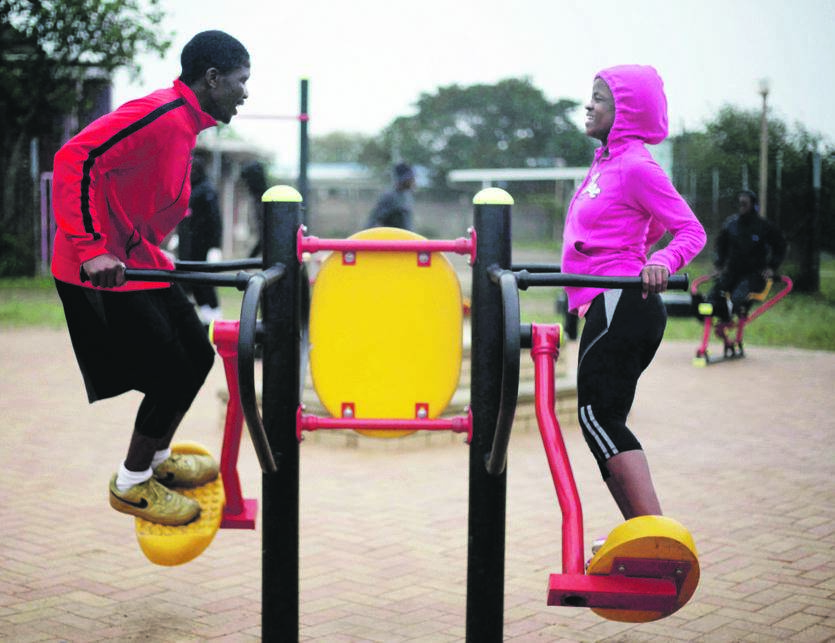
South Africans have certainly enjoyed one of the best weeks in a long time. Amid all the challenges we face, including a struggling economy, Siya Kolisi and the Springbok team’s Rugby World Cup victory served as a reminder of what we can achieve when we unite around a common goal.
There is strength in unity, passion and dedication and our team certainly epitomised these qualities.
Similarly, the team’s superb fitness and physical power to command the field for a full 80 minutes got me thinking about the example this set for us as a nation. What if Kolisi and the team could be a microcosm for the rest of us – another, exponentially larger, team? We could take inspiration from the hours of training and work that allowed them to lift the cup – and our nation – with their remarkable victory.
While we don’t all have to achieve these almost-superhuman fitness levels, there is a lesson on the power of physical activity.
This is also a significant risk we could address, considering that 28% of the global population is physically inactive, according to the World Health Organisation (WHO).
For a nation that is obesogenic, ranked as one of the most unhealthy on the planet this year (Indigo Wellness Index), South Africa simply cannot afford to ignore the long-term economic, business and personal benefits of regular exercise.
Physical activity and the economy
The economy is in trouble, so it may seem superfluous – tenuous – to say we need to move more and exercise more to fix our fiscal crisis.
We know too, that the dichotomy of our country and its economy means that we aren’t all walking on an even street, so to speak.
But, at the very basis of our existence is our health. And in it a strong economic link to the performance of the country. We have the evidence.
A new study – The economic benefits of a more physically active population – has deepened our understanding of the link between physical inactivity trends and economic indicators globally.
Many similar studies highlight the various links between a physically active lifestyle and mortality and morbidity, but not many exist that investigate the economic effects.
The results are astounding.
Economies of scale
The science that backs up the study is a 23-country evaluation which projects the true economic cost of physical inactivity over time, using the productivity of the workforce as a measure of impact.
Some of the main findings showed that if people between the ages of 18 and 64 walked just 15 minutes more a day, for the next 30 years, it could boost the world economy by an estimated $100 billion (R1.5 trillion) a year until 2050. In South Africa we could add at least $500 million or R7 billion to our GDP every year.
These are the minimum effects. The study then measured how different physical activity improvement scenarios could affect a country’s economy over the 30-year period (to 2050).
If those of us who are physically inactive were to reach the WHO’s recommended levels of exercise (equivalent to 15 minutes of moderate walking per day), employees would gain up to five additional days of productive time each year, and the global economy would grow by an estimated $220 billion every year.
In addition to getting inactive people active, if those currently active increased their physical activity levels by 20%, the economic gains could potentially yield $2.1 billion.
In a nutshell, by keeping the workforce healthier, we can contribute more to the economy and GDP because of the direct impact of physical activity improvements on economic growth over the long term – specifically, in three areas:
- Reduced mortality risk: By being physically active compared with being inactive, the risk of death is lower by 11% to 28%;
- Reduced sickness absence (absenteeism): Those of us who are not physically active report, on average, a larger amount of working time lost due to absenteeism (between 0.44 and 0.86 days a year) compared with an individual who is physically active; and
- Reduced presenteeism: This speaks to people who are at work, but ill and underperforming. An individual who is not physically active loses between 2.6 and 3.71 days a year to presenteeism compared with an individual who is physically active.
A few steps as a solution
When we examine the data, they show how the world can get healthier with just a few steps, a few minutes a day. Increased physical activity is part of the macro solution to the global problems we face – from obesity, to the burden of chronic diseases, mental health issues and more.
With good health, we can boost the competitiveness of a business, an economy and, collectively, a nation. While the country faces significant structural and other economic challenges, improving some quality aspects of our workforce, such as the productivity levels mentioned, could go a long way towards strengthening our economy over time.
Getting citizens to invest in one of our most valuable possessions, our health, could be key.
The study has revealed a solution that could affect humanity in such a positive way that we cannot ignore it. Physical inactivity is a significant global challenge alongside others, such as access to basic healthcare, clean water, the climate crisis and poverty. And it is a challenge we can tackle – individually and collectively as a nation. Because without our health, we have nothing.
Dinesh Govender is chief executive of Discovery Vitality which, with Rand Europe, conducted the study: The economic benefits of a more physically active population




 Publications
Publications
 Partners
Partners









